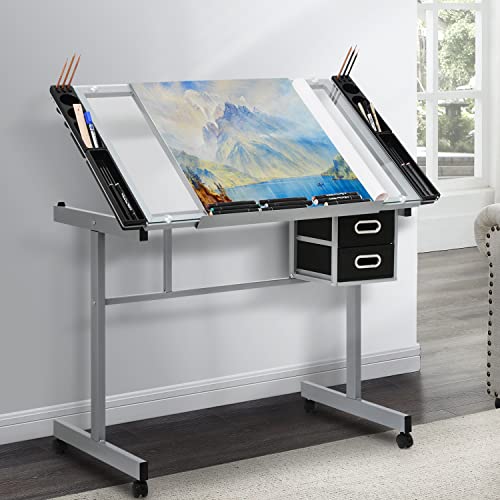Unlock your dream remote job with our top 5 tips! Elevate your job search, craft a standout resume, and prepare to impress hiring teams.
5 Tips and Tricks to Enhance Your Remote Job Search and Find Remote Jobs Are you ready to say goodbye to the daily commute and hello to working from home? The remote job market is growing fast, but standing out among many applicants can be tough. I’m here to share five key strategies to boost your remote job search and help you find that perfect work-from-home job.
These tips are great for both experienced professionals and newcomers to remote work. Top business books to read They’ll guide you through the unique challenges of finding remote jobs. You’ll learn how to make your online presence shine and ace virtual interviews, making your dream of working from home a reality.
The job hunt has changed a lot with more companies offering flexible work options. It’s important to update your search methods. I’ll walk you through finding remote jobs that match your skills and interests. Plus, I’ll show you how to avoid common mistakes that could slow you down.
Key Takeaways
- Optimize your LinkedIn profile for remote work visibility
- Tailor your resume to highlight remote-specific skills
- Leverage specialized remote job boards and platforms
- Craft compelling cover letters addressing remote work challenges
- Develop essential skills for virtual collaboration and communication
- Prepare for unique aspects of remote job interviews
- Stay motivated and organized throughout your remote job search
The Rise of Remote Work: A New Era in Job Hunting
Remote work has changed the job market, offering new chances for both job seekers and employers. With more digital nomads around, companies that support remote work are growing.
Understanding the Remote Work Landscape
The world of remote work is growing fast and is full of variety. Companies big and small are now offering flexible work options. I’ve seen a big increase in remote job ads in many fields, showing the trend is here to stay in the US job market.
Benefits of Remote Jobs for Employees and Employers
Remote work has many perks for everyone. As an employee, I get to balance my work and personal life better and save time commuting. Employers gain by finding talent from all over the world and saving money on offices. Here are some key benefits:
| Employee Benefits | Employer Benefits |
|---|---|
| Flexible schedule | Access to wider talent pool |
| Reduced expenses | Lower office costs |
| Improved productivity | Increased employee retention |
| Better work-life balance | Enhanced diversity |
High Back Big and Tall Leather Office Desk Chairs
Key Industries Embracing Remote Work
Some industries are leading in remote work. My research shows these are the top fields with lots of remote jobs:
- Technology and IT
- Digital marketing and content creation
- Customer service and support
- Education and e-learning
- Finance and Accounting
A Jewish Family Engagement Manager job I found pays $35-$50 an hour for 15-20 hours a week. This shows how flexible remote work can be. A Remote Working Conveyancing Fee Earner role offers £32,000 to £38,000 a year plus great benefits, showing the good pay in these jobs.
Leveraging LinkedIn for Remote Job Opportunities
LinkedIn is a key professional network for finding remote jobs. I’ve learned that making my profile stand out and using advanced search can help me find a remote job.
To get noticed, I highlight my skills for remote work. I show I’m good with digital tools and can work on my own. This has led to more recruiters looking at my profile.
LinkedIn’s job alerts are super useful. I set alerts for remote jobs in my field, so I get notified about new ones. This helps me stay on top in a tough job market.
| Job Category | Experience Level | Top Company Benefit |
|---|---|---|
| Marketing | 0-1 years | Remote Work Opportunities |
| Software Engineering | 1-5 years | Flexible Work Hours |
| Customer Service | 5-10+ years | Health Insurance |
Joining groups on LinkedIn related to my industry has opened up more remote job chances. By talking and sharing ideas, I’ve made connections that often lead to job tips not found in job ads.
“LinkedIn has changed how I look for remote jobs. It’s not just about finding jobs; it’s about building a network that supports your career goals.”
Being successful on LinkedIn takes work. I keep my profile updated, share useful content, and talk with my network. This keeps me visible to employers and helps me find great remote jobs.
Optimizing Your Resume for Remote Positions
In today’s job market, making your resume stand out for remote jobs is key. Tailoring your resume to show off remote skills can help you get noticed. Let’s explore some top tips for making a great remote work resume.
Highlighting Remote-Specific Skills
For remote jobs, it’s vital to focus on skills that shine in a virtual setting. I always highlight my skills in:
- Self-motivation and time management
- Digital communication tools
- Project management software
- Virtual collaboration techniques
Tailoring Your Experience to Remote Work
Even if you’ve never had a fully remote job, you can still show you’re ready. I talk about projects or tasks I’ve done on my own or with little supervision. This shows I can work well on my own – a big plus for remote jobs.
Incorporating Remote Work Tools and Technologies
Knowing remote work tech is a big advantage. I mention the tools I’m good with, like:
| Category | Tools |
|---|---|
| Video Conferencing | Zoom, Microsoft Teams, Google Meet |
| Project Management | Trello, Asana, Jira |
| Communication | Slack, Discord, Microsoft Teams |
| File Sharing | Google Drive, Dropbox, OneDrive |
By focusing on these remote skills and experiences, I’ve boosted my chances of getting noticed in the competitive remote job market. The goal is to prove to employers that you’re not just qualified, but also ready to thrive in a remote setting.
Navigating Remote Job Boards and Platforms
Remote job boards and job search platforms are full of opportunities. They focus on remote work, making it easier to find the right job. This makes my job search more efficient.
FlexJobs is a standout platform. It’s a paid service, but it’s worth it for the quality of jobs and resources. They check every job listing to save me time and avoid scams.
We Work Remotely is another great choice. It’s all about tech and digital marketing jobs, which fits my skills well. Many startups and big companies list their jobs here.
Remote. co is also a great tool. It offers articles and advice on working remotely. This helps me get ready for the unique challenges of remote work.
Here’s a quick look at some top remote job boards:
| Platform | Focus | Cost | Verified Listings |
|---|---|---|---|
| FlexJobs | Various industries | Paid subscription | Yes |
| We Work Remotely | Tech and digital | Free | Partially |
| Remote.co | Various industries | Free | Yes |
| JustRemote | Tech and customer service | Free with premium options | Yes |
Using these platforms has helped me find good remote jobs. It’s key to check them often and set up job alerts to catch new jobs quickly.
Crafting a Compelling Cover Letter for Remote Roles
When you’re applying for remote jobs, your cover letter is key. It shows off your skills and how you’re a good match for the job. Tackling remote work challenges in your cover letter can make you stand out.
Addressing Remote Work Challenges
In my cover letter, I talk about how I’ve dealt with remote work issues. I share my skills in using digital tools and staying productive at home.
Showcasing Self-Motivation and Time Management Skills
Being self-motivated is crucial in remote jobs. I talk about how I work well on my own and manage my time well. For example, I might say:
“In my previous role, I consistently met deadlines while working remotely, demonstrating my strong self-motivation and time management skills.”
Demonstrating Cultural Fit in a Virtual Environment
Even in remote jobs, fitting in with the company’s culture is important. I make sure my cover letter matches the company’s values. For example, applying to Hipgnosis Song Management, I’d talk about my love for music and my digital marketing skills. This shows I’d be a good fit for their team.
A well-written cover letter can help you get that remote job. It’s your chance to answer employer concerns and show why you’re right for their team.
Networking Strategies for Remote Job Seekers
In my search for remote jobs, networking has changed the game. Now, virtual events are key for making new professional contacts. I’ve joined online conferences, webinars, and meetups to grow my network and find new job chances.
Social media sites like LinkedIn have been a big help. I talk with professionals in my field, share ideas, and join groups related to my industry. This has led to important talks and possible job leads.

I’ve also connected with online groups focused on remote work. These places have lots of resources, job listings, and chances to meet other job seekers like me.
“Networking isn’t about collecting contacts; it’s about planting relationships.”
Here’s how I network for remote job search:
| Strategy | Platform | Frequency | Effectiveness |
|---|---|---|---|
| Virtual Events | Zoom, Hopin | Bi-weekly | High |
| Social Media Engagement | LinkedIn, Twitter | Daily | Medium |
| Online Communities | Slack, Discord | Weekly | High |
| Alumni Networks | University Platforms | Monthly | Medium |

By using these networking strategies often, I’ve boosted my chances of finding remote jobs. Remember, good networking is about making real connections, not just adding names to a list.
Remote Job Search and Find Remote Jobs: Essential Strategies
Finding remote jobs needs a special approach. I’ve found some key strategies that help you find hidden jobs and make your search easier.
Utilizing Advanced Search Techniques
Advanced search techniques can help your remote job search. I use keywords like “remote,” “work from home,” or “telecommute” with my job title. Boolean operators help narrow down the results even more.
Setting Up Job Alerts for Remote Positions
Job alerts are a big help in finding remote jobs. I set up alerts on different platforms to get updates on new remote jobs. This way, I save time and don’t miss out on new opportunities.
Exploring Niche Remote Job Platforms
Niche job platforms often have special remote jobs. I’ve had success by looking at job boards for specific industries and remote-only sites. These sites focus on certain skills and industries, making it easier to find the right job.
| Remote Job Search Strategy | Effectiveness | Time Investment |
|---|---|---|
| Advanced Search Techniques | High | Medium |
| Job Alerts | Medium | Low |
| Niche Job Platforms | High | High |
By using these strategies together, I’ve found exciting jobs and made my job search easier. Remember, being persistent and adaptable is important in the changing world of remote work.
Preparing for Virtual Interviews and Assessments
Virtual interviews are now common in the world of remote work. It’s key to be ready for these digital meetings to get your dream job. Here are some important tips for doing well in your next remote interview.
Start by checking your tech. Technical problems can ruin an interview. I make sure my camera and microphone work well before the interview. Platforms like Zoom or Skype are often used for virtual interviews, so get to know them.
Then, set up a professional background. I tidy my area and pick a simple background to avoid distractions. Good lighting is crucial – natural light is best, but a desk lamp can help too.
Getting ready for an interview is more than just tech. I practice answering common questions and think of examples that show my skills. For jobs that are done remotely, talk about how you work well on your own and stay motivated.
Often, remote interviews come with assessments. These might be tests or simulations. I take these seriously and make sure I have enough time to do them without any breaks.
| Virtual Interview Checklist | Done |
|---|---|
| Test camera and microphone | ☐ |
| Set up professional background | ☐ |
| Ensure good lighting | ☐ |
| Practice common questions | ☐ |
| Prepare for remote assessments | ☐ |
Virtual interviews need the same level of professionalism as face-to-face meetings. Dress well, look at the camera, and show you’re excited about the job. With good prep, you’ll make a strong impression and increase your chances of getting the remote job you want.
Developing Remote-Specific Skills to Stand Out
In today’s job market, knowing how to work remotely is key. I’ve learned that improving these skills can help you get a good remote job. Let’s look at some important areas to work on.
Mastering Digital Collaboration Tools
Knowing how to use digital tools for working together is a must for remote jobs. I’ve seen how knowing tools like Slack, Trello, and Asana can help. These tools make it easy to talk and manage projects with teams that are far apart.

Enhancing Written Communication Skills
Being clear in writing is very important for remote work. I’ve learned that sending clear emails, writing detailed project briefs, and chatting well is key. Working on these skills every day can make you better at your remote and help you build strong professional relationships.
Building a Personal Brand for Remote Work
Having a strong personal brand is crucial online. I’ve found that sharing my skills through LinkedIn posts, blogs, or portfolios helps me stand out. It’s about showing what you know and what makes you different in your field.
| Remote Work Skill | Importance | Tools/Platforms |
|---|---|---|
| Digital Collaboration | High | Slack, Trello, Asana |
| Written Communication | Critical | Email, Chat, Project Briefs |
| Personal Branding | Essential | LinkedIn, Blogs, Portfolios |
By working on these remote work skills, you’ll be ready to do well in the digital workplace. Remember, always keep learning and adapting in the changing world of remote work.
Overcoming Common Remote Job Search Challenges
Remote job searches have their own set of challenges. With 80% of candidates dealing with multiple offers, I aim to stand out. I customize my applications and showcase my skills for remote work.
Scams are a big worry in the remote job world. I always check out potential employers well and watch for warning signs. Avoiding requests for personal info or money upfront is key.
The application process for remote jobs can feel overwhelming. Many feel turned off by unclear job descriptions. I tackle this by reading job descriptions carefully and asking hiring managers for more details when needed. This helps me understand the role better and shows I’m proactive.
To stay ahead, I keep up with industry trends and improve my skills. With 65% of companies finding it hard to find the right talent, I focus on my unique skills in my applications. This strategy helps me overcome remote job search challenges.
“In the world of remote work, adaptability is key. Embrace the challenges as opportunities to grow and stand out.”
By tackling these challenges, I’ve boosted my chances of finding a great remote job. It requires persistence and a good plan, but the benefits of a perfect remote job make it all worth it.
Staying Motivated During Your Remote Job Hunt
Looking for a remote job can be hard. I’ve learned that staying motivated is key. Let’s look at ways to keep your spirits up and your job search moving forward.
Setting Realistic Goals and Timelines
Setting goals is important in a job search. I set weekly targets for applying and networking. This keeps me focused and tracks my progress. For example, I aim to apply to 5 positions and connect with 3 new people on LinkedIn each week.
Creating a Supportive Job Search Environment at Home
Your environment affects your motivation. I’ve made a special area for my job search, away from distractions. This keeps me in a professional mindset. I also use noise-cancelling headphones to help me concentrate better.
Maintaining Work-Life Balance While Job Hunting
Keeping a balance between work and life is crucial, even when you’re job hunting. I make sure to take breaks and do fun things to avoid getting too tired. For example, I take a 15-minute walk every two hours of searching. This helps refresh my mind and keeps me going.
| Job Hunting Strategies | Benefits |
|---|---|
| Set daily application goals | Maintains momentum |
| Create a dedicated workspace | Increases focus |
| Schedule regular breaks | Prevents burnout |
| Network on LinkedIn | Expands opportunities |
Remember, staying motivated is a journey. By using these strategies, you’ll be ready to face the ups and downs of your remote job search.
Conclusion
As I finish this guide on remote job search tips, I’m thrilled about the opportunities waiting for you. The world of remote work is growing fast, bringing new chances for success. By using these tips, you’ll be ready to find your perfect remote job.
Remember, never give up in your search for a remote job. Keep improving your online profile, making your applications stand out, and showing off your skills for remote work. See virtual interviews and assessments as chances to prove how flexible you are – a key skill for remote jobs.
Starting your remote job search? Keep learning and growing. The digital workplace changes often, so stay updated with new tools and trends. With these tips, you’re set to succeed in the remote job market. Good luck with your job search, and best wishes for your remote work future!
FAQ
What are the benefits of remote work for employees?
Remote work improves work-life balance and cuts down on commute time. It gives more flexibility and can make employees happier.
How can I leverage LinkedIn for finding remote job opportunities?
Make your LinkedIn profile stand out, connect with recruiters, and use advanced search to find remote jobs. Set up job alerts and let LinkedIn suggest jobs you might like.
What skills should I highlight on my resume for remote positions?
Focus on skills like self-motivation, time management, and using digital tools for teamwork. Showing you’ve worked remotely before is also a plus.
What are some popular remote job boards and platforms?
Check out FlexJobs, We Work Remotely, and Remote.co for curated remote job listings across different fields.
How can I make my cover letter stand out for remote roles?
Talk about how you handle remote work challenges, your skills in independent work and communication. Show you fit with the company’s values.
What networking strategies can help in a remote job search?
Join virtual industry events, be active in online communities, and use social media to grow your professional network.
How can advanced search techniques aid in finding remote job opportunities?
Use job alerts, look at job sites specific to your field, and take advantage of advanced search tools.
How can I prepare for virtual interviews and assessments?
Check your tech, set up a professional background, and know the rules of video calls. Be ready for tests or simulations online.
What remote-specific skills should I develop to stand out?
Get better at using digital tools, improve your writing, and build a strong online brand. Show your skills and professionalism online.
What are some common challenges in a remote job search?
Face more competition, watch out for scams, and do your homework on employers. Keep trying and keep learning new skills.
How can I stay motivated during a remote job hunt?
Set clear goals and timelines, make your job search area at home supportive, and keep a balance between work and life to avoid burnout.














No responses yet